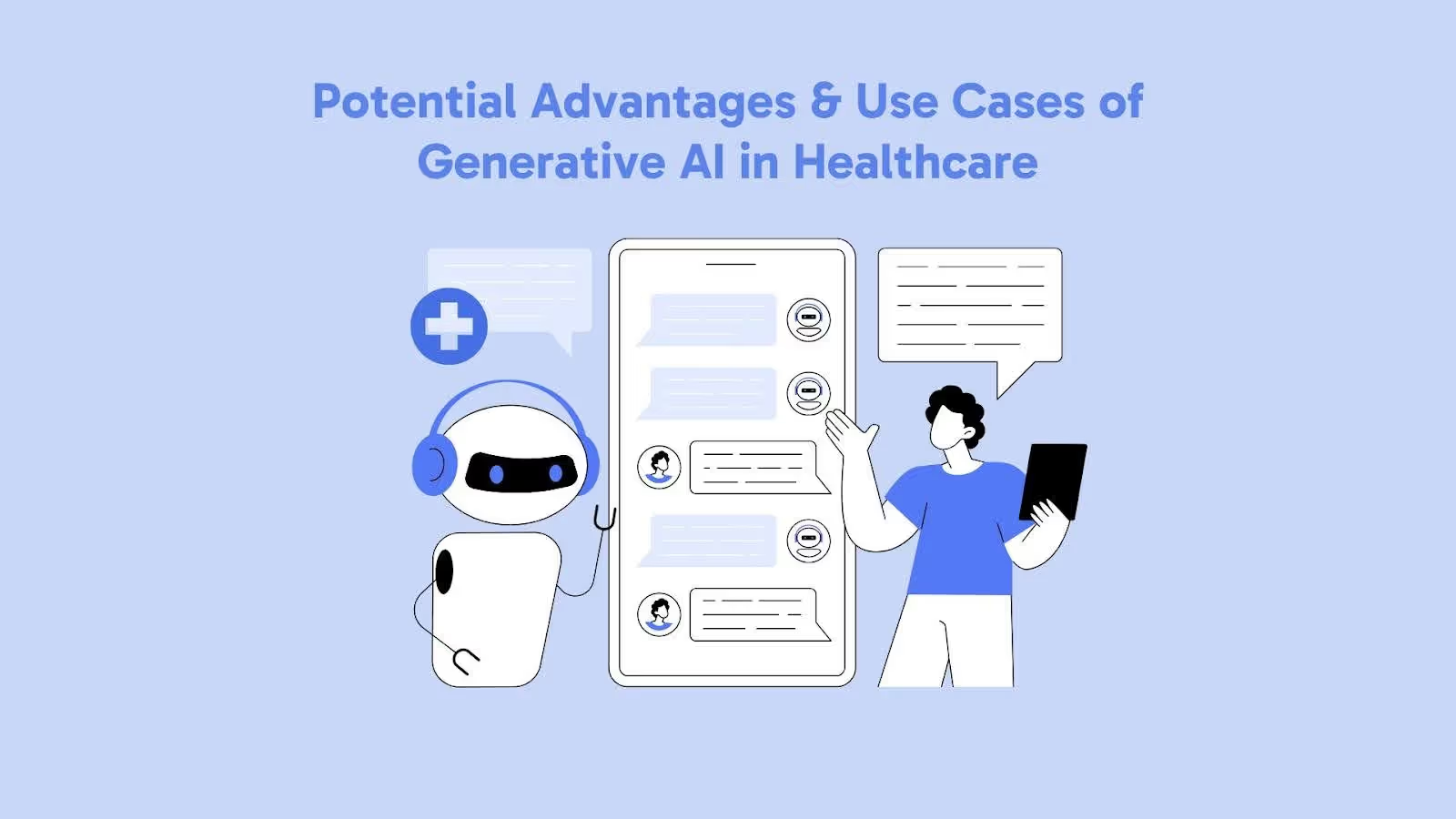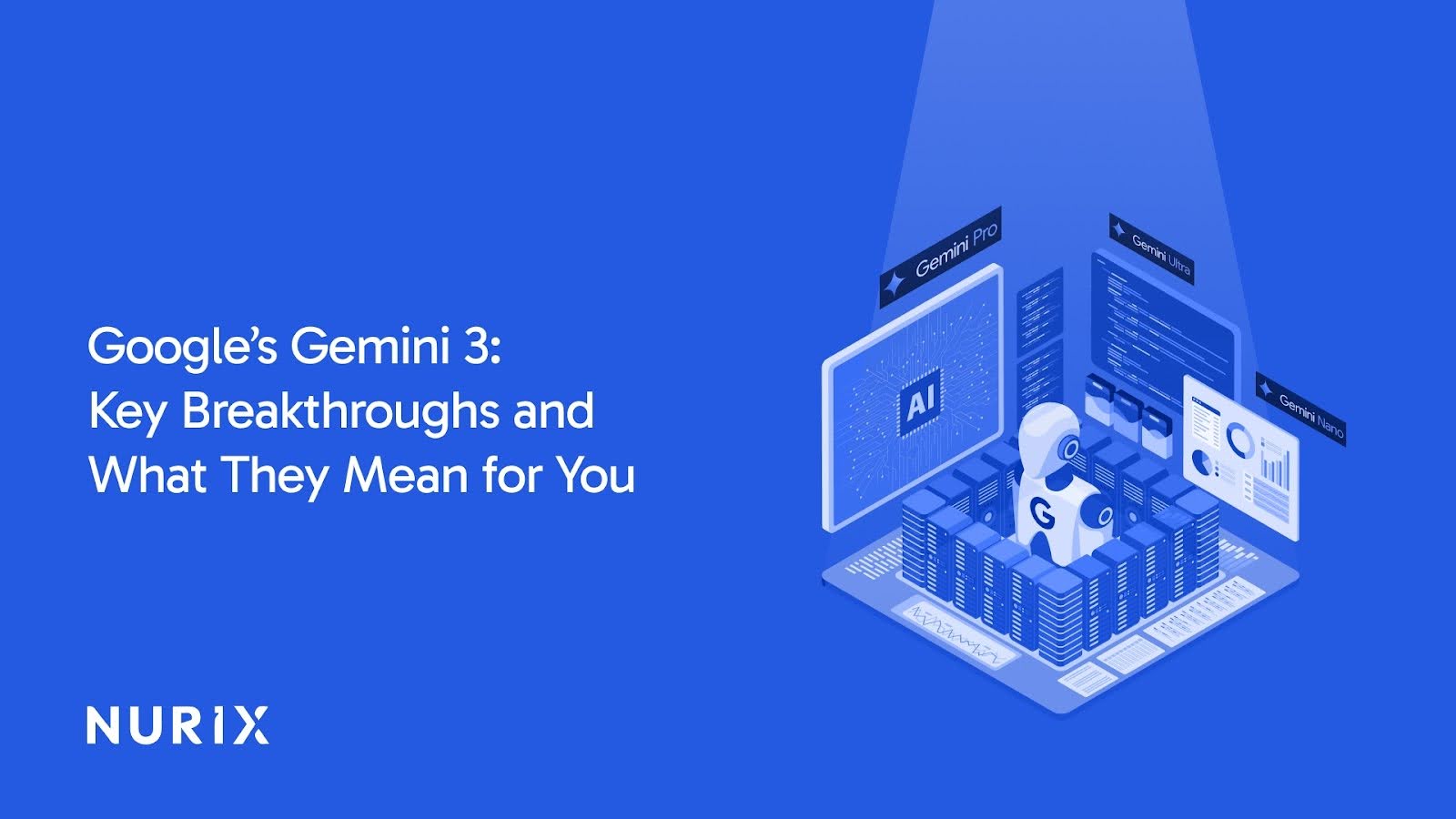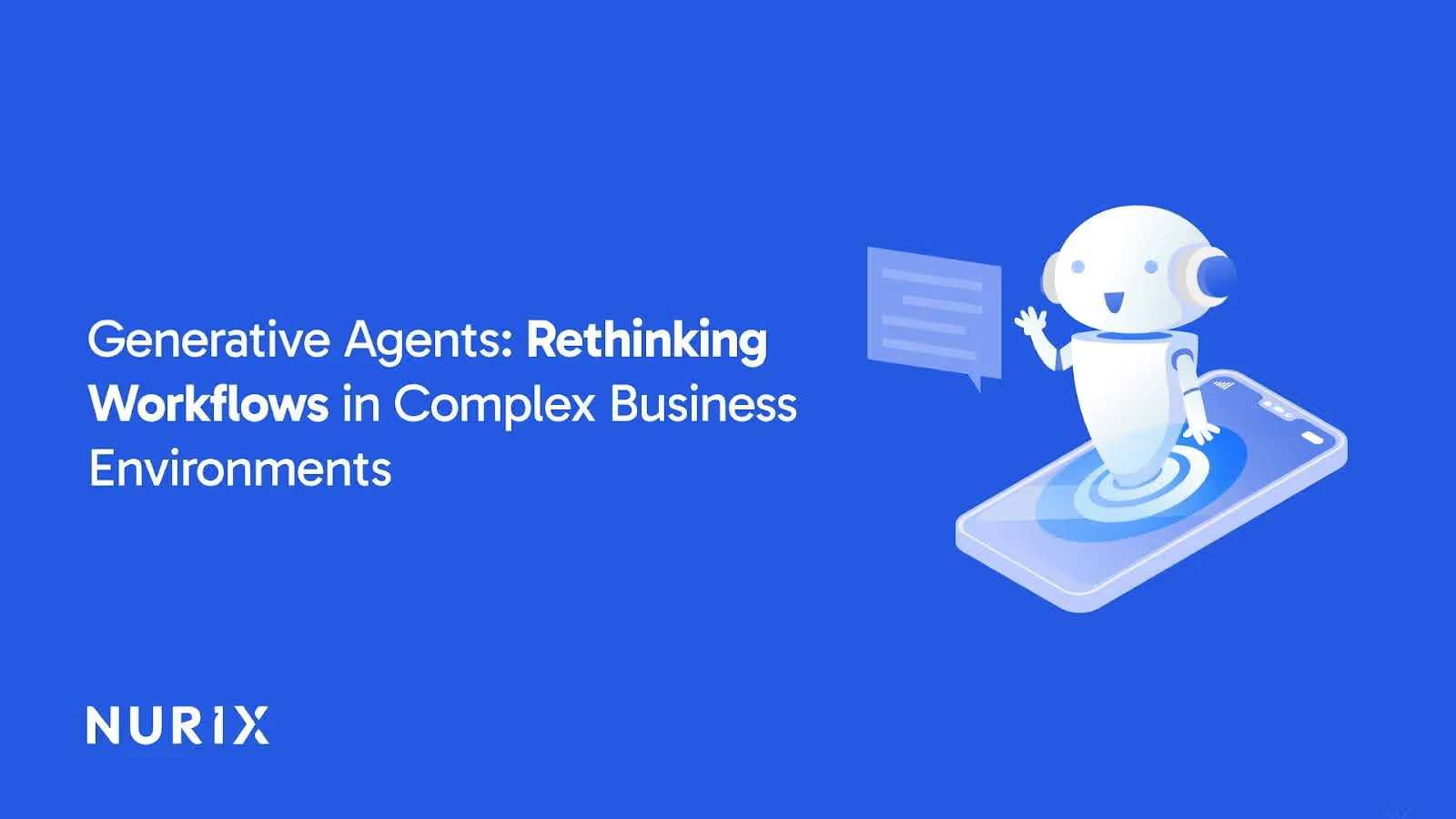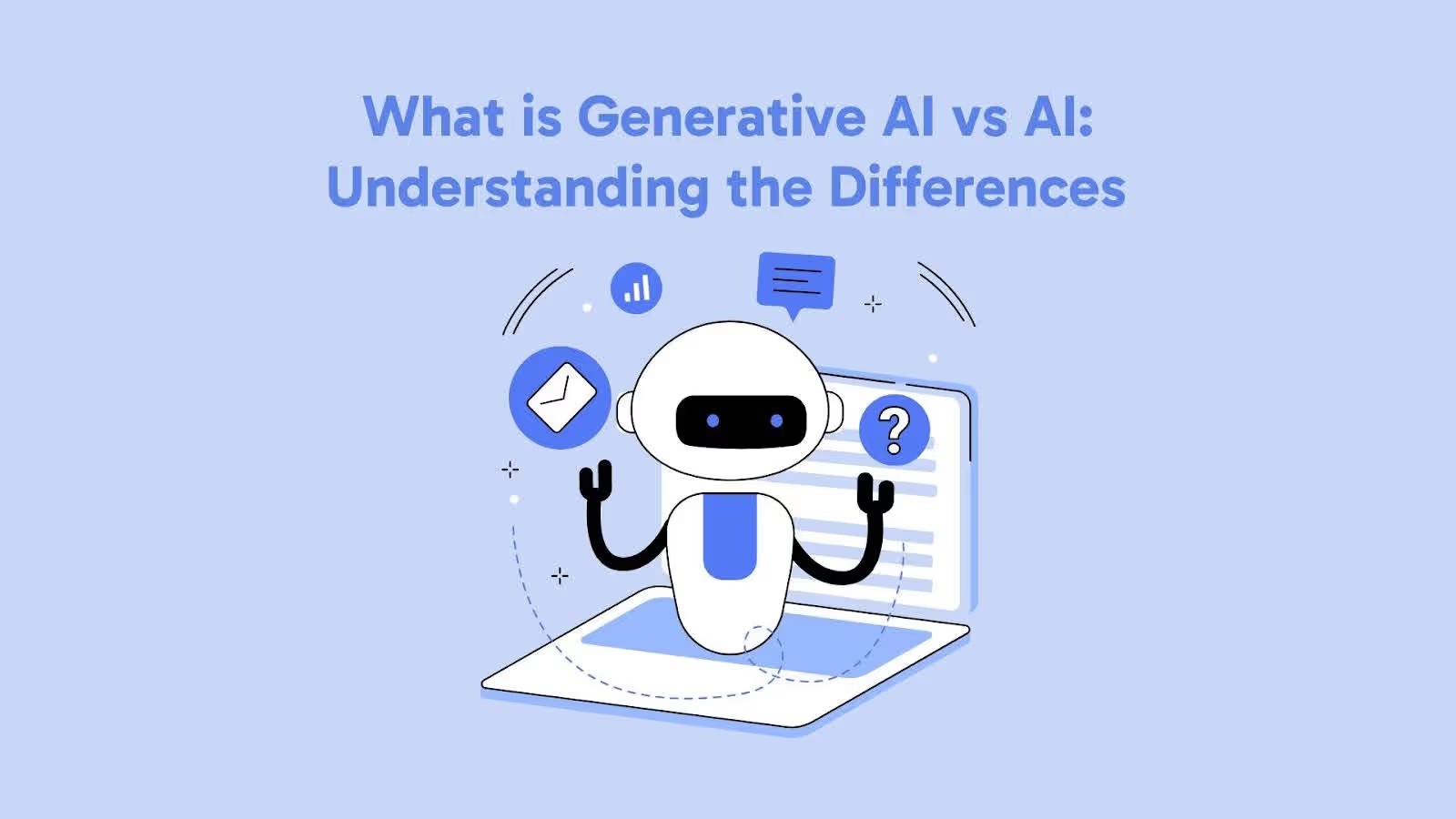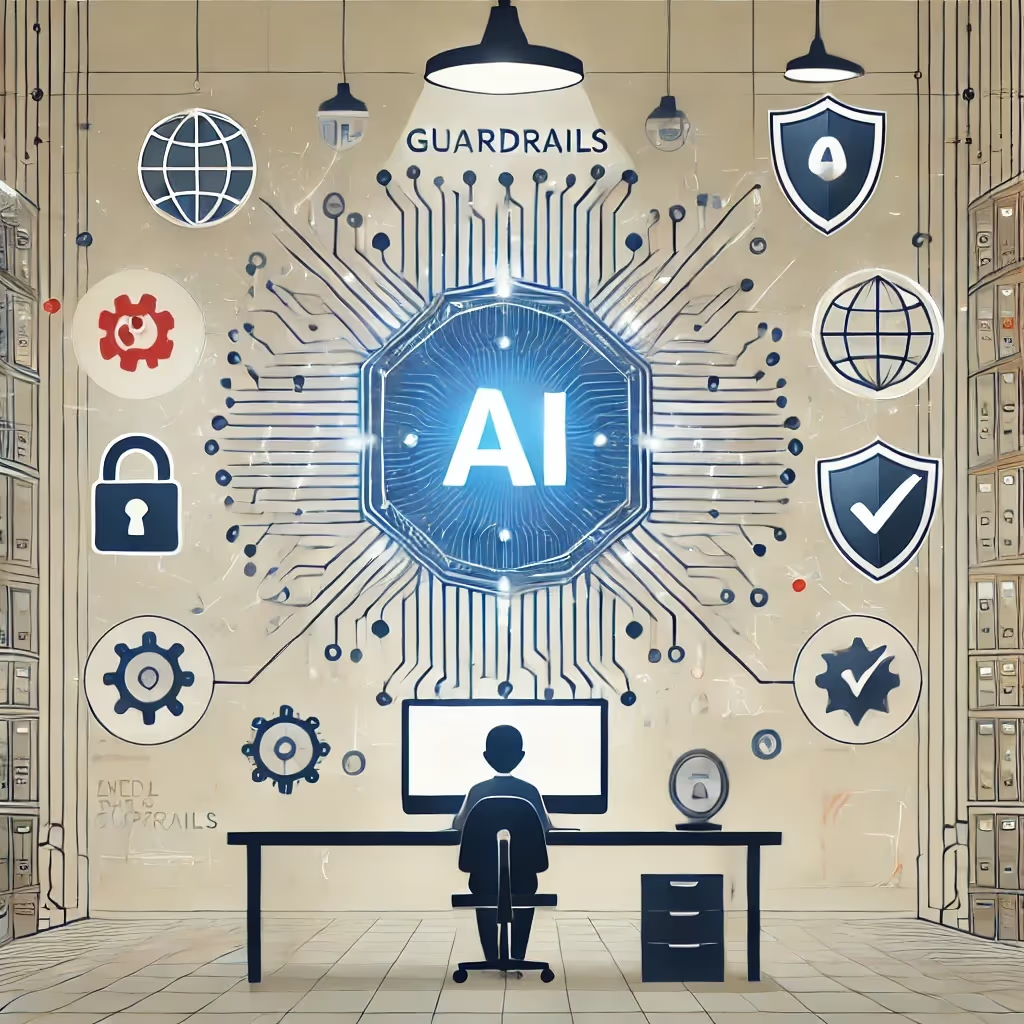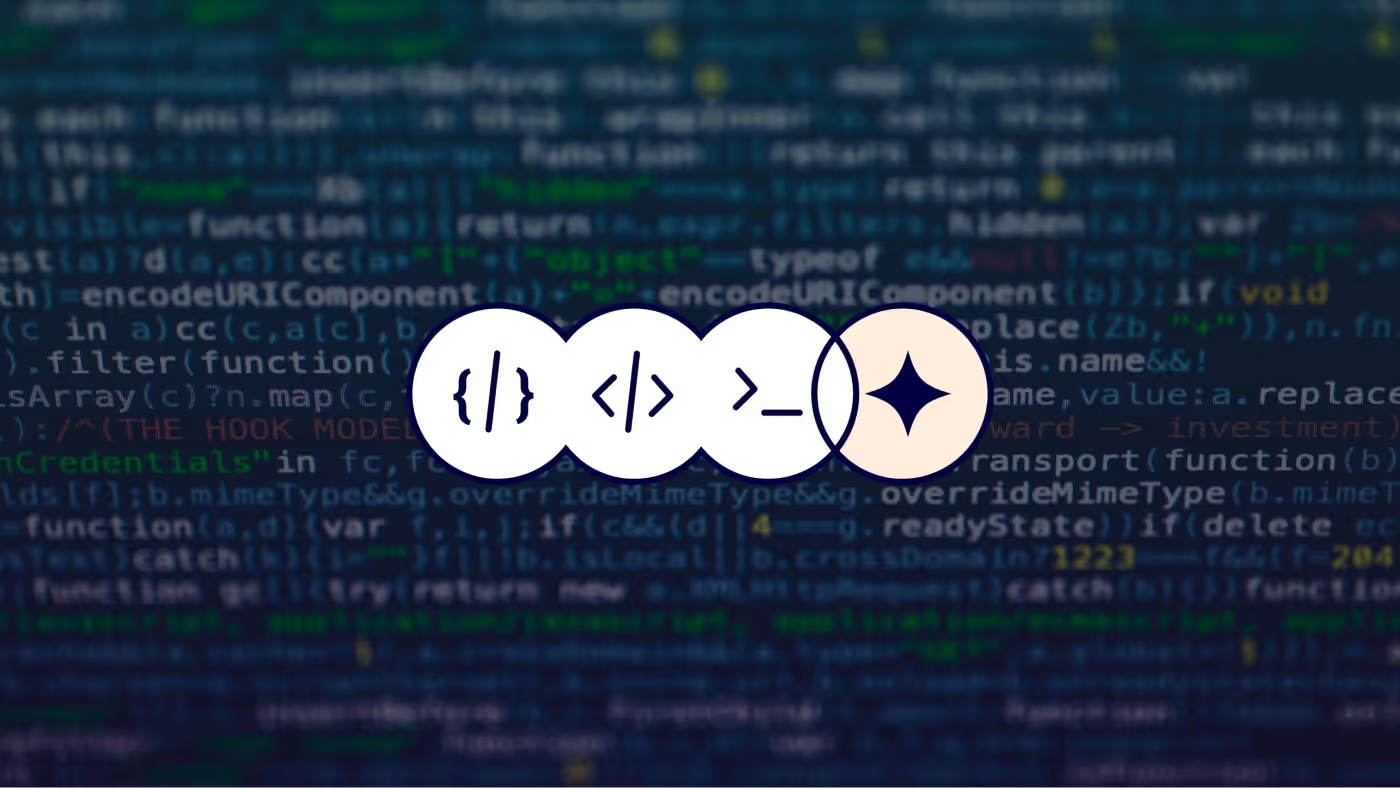Generative AI has brought a new-age opportunity for businesses across all sectors because of its capability to resolve difficult issues and automate tasks while increasing productivity.
But what does this mean in health care? How can this technology address the very real challenges faced in healthcare today? Is the healthcare industry ready to jump on new tech?
Generative AI isn’t just the future—it’s already making an impact, especially in healthcare. Today, Gen AI is helping healthcare by creating new drugs, personalizing treatments, analyzing medical images, and even generating realistic data for research.
We're talking about potential breakthroughs in everything from drug discovery and diagnostics to personalized medicine and patient care. This technology is reshaping how we approach disease, perform research, and, ultimately, improve healthcare tasks. The numbers speak for themselves. A recent survey indicates that a significant portion of US healthcare organizations (46%) are already dipping their toes into the generative AI pool, with many more actively exploring its potential. And in early 2024, a clear majority of healthcare leaders reported either using (29%) or testing (43%) generative AI tools within their organizations.
Curious about how generative AI is transforming healthcare? Let’s explore the biggest breakthroughs and how they can benefit healthcare professionals.
What is Generative AI in Healthcare?
Generative AI (GenAI) is a type of artificial intelligence capable of generating textual, visual, and auditory content. Moreover, Large Language Models (LLMs), an important component of generative AI, are becoming more exciting as they provide you with an interface where you can talk to them.
The technology is not new, but the recent advancement in generative adversarial networks (GANs) and transformers have allowed large language models to evolve.
Healthcare providers can use generative AI to diagnose diseases, offer personalized medicine, advance drug discovery, and more. Although doctors still make the final decisions, many administrative and data-analyzing functions can be transferred to a machine.
Research from McKinsey has shown that GenAI adoption rates have skyrocketed in the last year, predicting the ever-growing implementation across the sectors. And the data within the healthcare industry echoes the same statistics: By the year 2025, 50% of drug development will be made by generative AI.
So, we've seen what generative AI is and the impressive growth projections for its use in healthcare. But what does this translate to in practice? What are the specific advantages that make generative AI such a game-changer for the industry? Let's explore those benefits now.
Benefits of GenAI in Healthcare
Generative AI is poised to bring a wave of positive changes to healthcare, touching everything from how we diagnose diseases to how we develop new treatments. Let's break down some of the key benefits:
Benefits for Patients
- AI can consider unique medical history, genetics, and lifestyle to create a personalized treatment plan that's just right for patients. This can lead to better results and fewer side effects.
- AI-powered chatbots can answer patients' questions, give health advice, and remotely monitor their condition. This is especially helpful if you live far from a doctor or have trouble getting around.
- If a patient has a long-term condition like diabetes or asthma, AI can help them track their progress, give reminders, and offer personalized advice to help them stay healthy.
Benefits for Healthcare Providers
- AI can automate tasks like generating reports, summarizing patient records, and even handling insurance claims.
- AI can assess medical images and patient data to spot subtle patterns that the human eye might miss. This can lead to earlier and more accurate diagnoses.
- AI can provide doctors with personalized treatment recommendations based on the latest research and the patient's specific circumstances.
- AI can analyze large amounts of medical data to detect trends and patterns that would be impossible for humans to see. This contributes to breakthroughs in medical research and the development of new treatments.
- Healthcare professionals are often overworked and stressed. AI can reduce burnout and improve job satisfaction by automating routine tasks.
Benefits for Hospitals
- AI can automate administrative tasks, improve processes, and optimize resource allocation, leading to significant cost savings.
- AI can improve operational efficiency such as scheduling appointments, managing bed availability in real-time, predicting patient flow to avoid bottlenecks, and optimizing supply chain management.
- By improving the quality of care, reducing wait times, offering personalized services, and providing better communication through AI-powered chatbots, hospitals can significantly enhance patient satisfaction.
- AI can analyze patient data to identify individuals at high risk of developing certain conditions. This allows hospitals to take proactive measures to prevent these conditions and improve patient outcomes.
- Hospitals that embrace AI and offer cutting-edge technology are more likely to attract and retain top medical talent.
Now, let’s discuss some concrete use cases to understand how this technology is actually being used.
Potential Use Cases of Generative AI in Healthcare
Generative AI is rapidly changing how we approach medicine, from drug discovery to patient care. Its ability to create new content, from molecules to medical images, offers great opportunities to improve healthcare outcomes.
Some of the key ways this technology is making a difference are:
1. Improving Drug Discovery and Development
Drug discovery is a complex and costly process that can take many years.
Generative AI, particularly models like Generative Adversarial Networks (GANs) and diffusion models, accelerates the design, synthesis, and testing of novel drug candidates.
These models learn the complex relationships between molecular structures, properties, and biological activity, allowing them to generate new molecules with desired characteristics.
The use of GenAI can reduce the time and cost associated with developing life-saving medications.
GenAI is used in drug discovery in the following ways:
- Generative AI can create entirely new molecules with specific properties, such as targeting a particular protein or having a desired therapeutic effect. This allows researchers to explore a vast chemical space and identify promising drug candidates that might not have been considered otherwise.
- AI models can predict how a drug molecule will interact with the body, helping researchers identify potential side effects and optimize drug design for maximum efficacy and safety.
- Generative AI can analyze a patient's genetic information and medical history to identify the most effective drugs and dosages for their specific condition.
- AI can analyze existing drugs and identify new potential uses for them, accelerating the process of drug repurposing and bringing new treatments to patients faster.
Real-world examples:
Insilico Medicine uses generative AI to discover and develop novel drugs for a variety of diseases, including cancer and fibrosis. They have demonstrated the ability of their AI platform to accelerate the drug discovery process significantly.
Atomwise uses AI to analyze molecular structures and predict their biological activity, helping researchers identify promising drug candidates for a range of diseases.
2. Revolutionizing Medical Imaging and Diagnostics
Medical imaging plays a crucial role in diagnosing and monitoring various medical conditions. Generative AI is transforming this field through the creation of synthetic medical images with increased image quality and automated image analysis. Generative AI has the potential to improve diagnostic accuracy, reduce radiation exposure, and make medical imaging more accessible.
The synthetic data created by GenAI:
- Improve the quality of medical images (X-rays, MRIs, CT scans) by reducing noise, correcting artifacts, and filling in missing information.
- Analyze medical images to identify potential signs of disease, such as tumors, fractures, or other abnormalities. This assists radiologists in making more efficient and accurate diagnoses.
- Create realistic synthetic medical images for training AI algorithms. This is particularly useful for rare diseases or conditions with limited patient data.
- Modeling how diseases evolve over time allows researchers to better understand the complexities of disease mechanisms and design more targeted therapies.
- Creates synthetic but highly accurate images to augment limited datasets. This helps improve the accuracy of diagnostic models without compromising patient privacy.
Real-world examples:
Numerous research institutions are actively exploring the use of generative AI in medical imaging. Their work is often published in peer-reviewed journals. These publications provide evidence of the research and development in this area.
NVIDIA is a major player in AI and has been involved in developing tools and platforms for medical imaging applications, including those involving generative AI. Their work often focuses on accelerating the training of AI models for image analysis and enhancement.
3. Personalizing Treatment Plans
In medicine, there is no one-size-fits-all approach. Every individual patient is treated based on their unique characteristics. Generative AI assists in this by analyzing vast amounts of patient data and generating personalized treatment recommendations.
This approach promises to improve treatment effectiveness, reduce side effects, and better treatment outcomes.
Here’s how this works:
- Generative AI can evaluate a wide range of patient data, including medical history, genetic information, lifestyle factors, and even environmental exposures, to identify patterns and insights that would be impossible for a healthcare professional to see.
- AI chatbots and virtual assistants can provide patients with personalized health advice, answer their questions, and monitor their conditions remotely, improving patient engagement and adherence to treatment plans.
Real-world example:
Foundation Medicine uses genomic profiling to personalize cancer treatment. While not strictly generative AI in the creation of treatments, their approach to personalized medicine through data analysis is a key part of the broader picture. Their work highlights the importance of individualizing treatments based on genetic information.
4. Improving Patient Care
Generative AI is not just about developing new treatments; it's also about improving the overall patient experience and making healthcare more accessible and convenient. From AI-powered chatbots to personalized health advice, generative AI is transforming how patients interact with the healthcare system.
Here’s how Gen AI helps improve patient care:
- AI chatbots can answer patients' questions, provide personalized health advice, schedule appointments, and even monitor their conditions remotely.
- Generative AI can create personalized educational materials for patients tailored to their specific needs and health literacy level.
- AI can assess data from wearable devices and other remote monitoring tools to track patients' health status and alert healthcare providers to potential problems.
- AI-powered chatbots can provide mental health support, answer questions about mental health conditions, and even conduct preliminary assessments.
Real-world example:
While widespread, fully integrated AI-driven patient care is still developing, many companies and research institutions are actively working on these technologies.
One example of a company making strides in this area is Nurix AI.
With Nurix, you can be there for your customers whenever they need you. Offer round-the-clock support across voice, chat, email, and social media, making service faster, smoother, and more reliable.
Nurix can handle various tasks, from answering patient inquiries and scheduling appointments to providing personalized instructions. This not only improves patient satisfaction by providing instant, convenient support but also frees up healthcare staff to focus on more complex tasks.
With Nurix, you can make every interaction count. Request a demo today!
5. Improving Healthcare Operations
Running a hospital or healthcare system is a complex task. Generative AI offers powerful tools to optimize various aspects of healthcare operations, leading to cost savings, improved resource allocation, and enhanced efficiency.
Here’s how it works:
- Gen AI can automate administrative tasks such as generating medical reports, summarizing patient records, and handling insurance claims, freeing up staff to focus on more important tasks.
- It can optimize appointment scheduling to reduce wait times and improve patient flow. It can also predict no-shows and adjust schedules accordingly.
- Gen AI can analyze patient data and predict bed availability, allowing hospitals to allocate resources more efficiently and avoid overcrowding.
- AI can predict patient flow to anticipate peak times and ensure that sufficient staff are available to meet demand.
- It also can optimize supply chain management by predicting demand for medical supplies and ensuring that hospitals have the necessary resources on hand.
Real-world example:
Oscar Health integrates generative AI across multiple administrative functions to improve efficiency and accuracy. It automates claim pricing by reviewing complex contracts, assists clinicians by comparing patient data to clinical guidelines, and enhances fraud detection by identifying claim anomalies.
Potential Challenges and Ethical Concerns of Generative AI in Healthcare
Generative AI in healthcare holds immense promise, but its implementation isn't without its challenges. As we integrate this powerful technology into medical practice, we must carefully consider the ethical implications and potential pitfalls to ensure responsible and beneficial use.
Some key challenges and ethical concerns are as follows:
- Data Privacy and Security: AI models require vast amounts of data, and in healthcare, this data is highly sensitive. Protecting patient privacy and ensuring data security are paramount. Robust data governance frameworks and strict adherence to regulations are crucial.
- Bias and Fairness: AI models can inherit biases present in the data they are trained on, leading to unfair or discriminatory outcomes. Careful attention must be paid to data selection and model training to mitigate bias and ensure fairness.
- Explainability and Transparency: "Black box" AI models, where the decision-making process is opaque, can be problematic in healthcare. Doctors need to understand how an AI arrives at a diagnosis or treatment recommendation to trust and effectively use the technology.
- Accuracy and Reliability: AI models are not perfect and can make mistakes. Ensuring the accuracy and reliability of these models is essential for patient safety. Rigorous testing, validation, and continuous monitoring are necessary.
- Ethical Decision-Making: AI models may be called upon to make complex ethical decisions, such as allocating scarce resources. It's crucial to ensure that these decisions are made ethically and in accordance with human values.
Addressing these challenges requires a multi-faceted approach involving collaboration between researchers, clinicians, policymakers, and patients. By working on these concerns, we can utilize the power of generative AI to transform healthcare responsibly and ethically.
To Conclude
The use of generative AI in healthcare brings forth various opportunities. It has the potential to transform healthcare by improving the drug discovery process, offering personalized healthcare, and streamlining clinical operations.
All the benefits and use cases discussed above lead the way for improved healthcare outcomes and groundbreaking innovations in medicines.
However, It's important to remember that AI is a tool to help doctors and improve healthcare, not replace them. The goal is to combine the strengths of AI with the expertise of healthcare professionals to provide the best possible care for patients.
To maximize the benefits of gen AI and integrate it successfully into healthcare practice, you need experts.
Nurix is an AI development service provider that can help you implement custom AI solutions in your healthcare business. With the latest tech stacks and custom solutions, we ensure a smooth integration, helping your organization to use the benefits of AI technology effectively.
Trust Nurix AI for innovative and reliable AI solutions.
FAQs
1. What are the potential advantages of using generative AI in healthcare?
Generative AI can enhance patient care by providing personalized treatment plans, improving diagnostic accuracy, streamlining administrative processes, and facilitating drug discovery through predictive modeling and data analysis.
2. How can generative AI improve the accuracy of diagnoses in healthcare?
Generative AI can analyze vast amounts of medical datasets and identify patterns that may not be immediately apparent to healthcare professionals, leading to more accurate and timely diagnoses.
3. In what ways can generative AI assist in drug discovery?
GenAI can predict molecular behavior, optimize compound structures, and simulate interactions, significantly speeding up the drug discovery process and reducing costs associated with research and development.
4. Can generative AI help in creating personalized treatment plans for patients?
Yes, generative AI can analyze individual patient data, including genetics, medical history, and lifestyle factors, to recommend personalized treatment plans that increase the effectiveness of therapies.
5. Are there any ethical concerns associated with the use of generative AI in healthcare?
Yes, ethical concerns include data privacy, informed consent, potential biases in AI algorithms, and the need for accountability in decision-making processes. It’s important to address these issues to ensure responsible AI use in healthcare.

